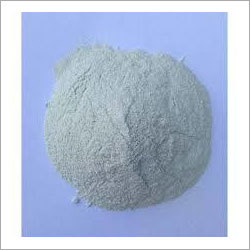
Ferrous Sulphate Monohydrate
7500.00 - 22500.00 INR/Ton
Product Details:
- Form Powder
- Storage Room Temperature
- Application Metal Water Treatment
- Click to view more
X
Ferrous Sulphate Monohydrate Price And Quantity
- 20 Ton
- 7500.00 - 22500.00 INR/Ton
Ferrous Sulphate Monohydrate Product Specifications
- Powder
- Room Temperature
- Metal Water Treatment
Ferrous Sulphate Monohydrate Trade Information
- Rajasthan
- Cash in Advance (CID) Cash Advance (CA)
- 2000 Ton Per Day
- 1 Week
- Yes
- Chandigarh Himachal Pradesh Uttarakhand Daman and Diu Dadra and Nagar Haveli Lakshadweep Chhattisgarh South India East India Andaman and Nicobar Islands Andhra Pradesh Assam Arunachal Pradesh Delhi Gujarat Goa Jammu and Kashmir Jharkhand Madhya Pradesh Maharashtra West Bengal Tamil Nadu Telangana Rajasthan Sikkim Tripura Mizoram Meghalaya Manipur Nagaland Odisha Punjab Pondicherry Uttar Pradesh Haryana Karnataka North India Bihar Kerala Central India West India All India
Product Description
Providing your lawns and garden a fertile soil, ferrous sulphate monohydrate has found its place in many domestic applications. The product is also used as a precursor to other iron compounds. Moreover, it is used in many industries as a reducing agent which is one of the mediums to do away with chromate in cement. It is further, used in various pharmaceutical products and medicines as it helps to cure the deficiency of iron in the human body along with supplying the required amount of minerals to your body systems.
Production of Product:
A procedure is accommodated for changing over iron, for example, scrap iron, specifically to our Ferrous sulphate monohydrate without transitional development of ferrous sulfate heptahydrate, the utilization of vacuum, pressure or potentially elevated high working temperatures. In addition, the above is accomplished by responding sulfuric acid and iron concentration including a solution inside the scope of between 10-90 percent for a time frame adequate to decrease the independent acid solution to between 2-35 percent.
Ferrous Sulphate Monohydrate Specifications:
- Molecular Mass : 151.908 g/mol
- Molecular Formula : FeSO4
- CAS Number : 7720-78-7
- PubChem CID : 24393
Chemical/Physical Property:
- Melting point : 64 °C
- Density : 1.897 g/mL at 25 °C
- Vapor Pressure : 14.6 mm Hg ( 25 °C)
- Storage Temp. : 2-8°C
- Solubility : 25.6 g/100 mL (20°C)
- Form : Solution
- Color : Slightly greenish to blue
- PH : 3.0-4.0 (25℃, 50mg/mL in H2O)
- Water Solubility : 25.6 g/100 mL (20 °C)
- Sensitive : Air Sensitive & Hygroscopic
- Merck : 14,4057
- Stability : Stable. Substances to be avoided include strong oxidizing agents. Air and moisture sensitive
Uses:
1) It is broadly utilized as a research center synthetic for the making of Hydrogen Sulfide gas, by KIPP'S equipment, when interacts with weakened mineral acids.
2) In foundries, amid electric dissolving, remaining sulfur level reduces because of cleaner softening practices and the utilization of less sulfur steel scrap. It is discovered that iron does not promptly react to inoculants if Sulfur is beneath 0.04%. It is important to re-sulphurize by utilizing iron sulfide or ferrous sulfide.
3) In stainless and alloy steel businesses: To Control Hydrogen Embrittlement, our Ferrous sulphate monohydrate is extremely advantageous and monetary to utilize for re-sulphurization in these steels to hold the correct dimension of 'S' and guaranteeing not to drop 'S' degree.
Other Products in 'Ferrous Sulphate' category
|
|
|
 |
SRINATH ENTERPRISES
All Rights Reserved.(Terms of Use) Developed and Managed by Infocom Network Private Limited. |





